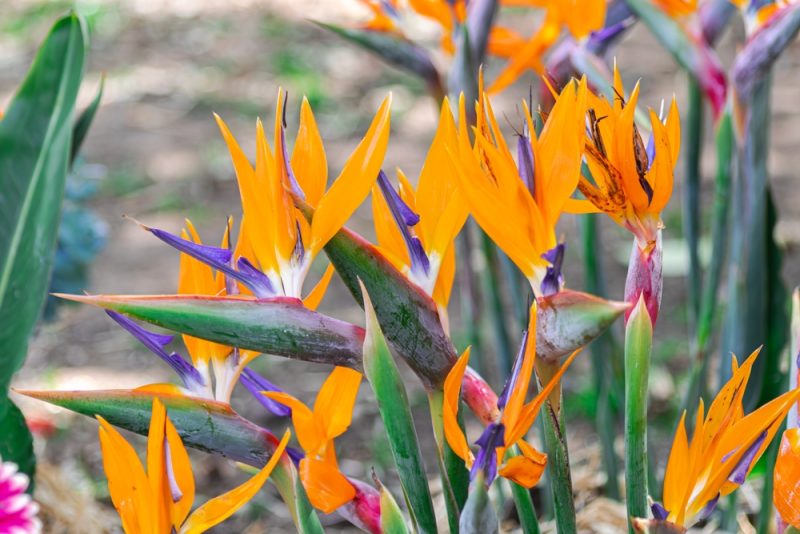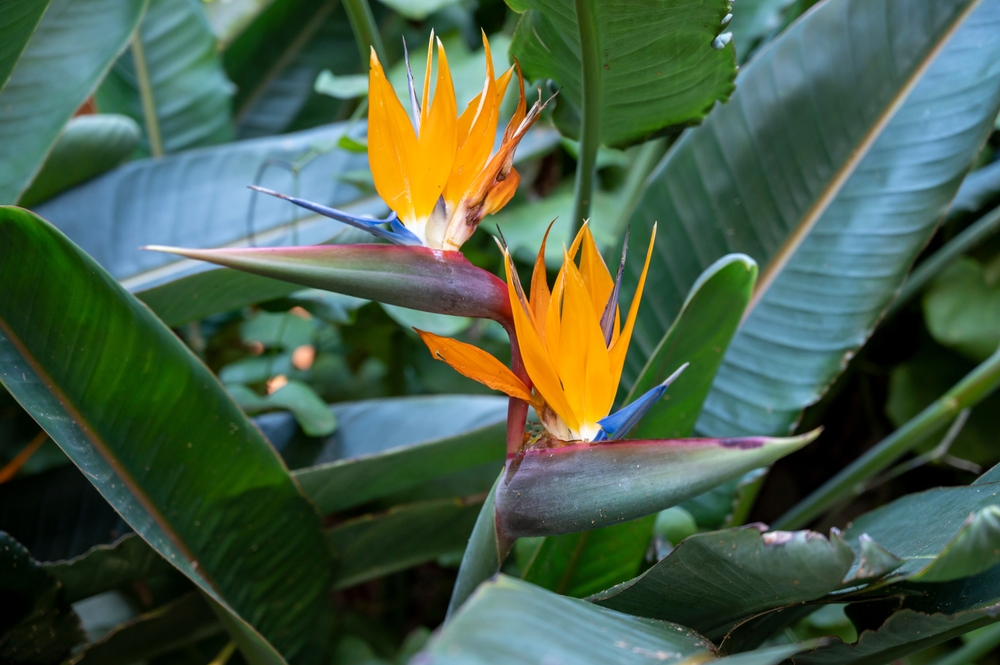If you’re a dog parent and a plant parent, you know some plants are toxic to canines and shouldn’t be in your home or garden. You might not know all the plants that can harm your pup, though. If you’re a fan of Birds of Paradise, you should be careful about having this lovely flower around your dog.
While this plant provides a nice splash of color to any home and is fairly easy to maintain, it is mildly toxic to dogs. So, if you have a dog around this plant, you need to ensure they don’t consume any of it. Here’s a closer look at what to know about Birds of Paradise and canines.

What Is the Bird of Paradise?
In case you’re unfamiliar with the Bird of Paradise and need to know what to avoid, this plant hails from South Africa. It’s also known as the Bird’s Tongue Flower and the Crane Flower, so you might simply know it by a different name, and the scientific name is Strelitzia reginae. Birds of Paradise are bright orange and purple and highly inviting.
However, this plant is toxic to dogs. While the entire plant is toxic, the most toxic parts are the fruit and seeds. One important thing to note is that another plant also goes by the Bird of Paradise name, the Bird of Paradise Bush or Poinciana gilliesii. This plant is much more toxic to dogs, so you absolutely want to avoid it.

What Happens if My Dog Eats a Bird of Paradise?
Luckily, the Bird of Paradise is only mildly toxic to dogs, so if your pet eats some of this plant, you don’t need to worry about severe issues, such as seizures or death. However, your four-legged friend will be uncomfortable after consuming a Bird of Paradise. If they’ve done this, you could see signs appear, sometimes within minutes after consumption, including:
- Vomiting
- Anorexia
- Irritation and discomfort in the mouth
- Diarrhea
If your dog is experiencing any of these things after eating part of a Bird of Paradise, contact your vet for further guidance. They will likely want you to keep an eye on your pup for the next few hours, but they may also want you to bring your pet in if things seem more serious than they should be.
💛 🐶 Speak To a Vet Online From the Comfort of Your Couch!

If you need to speak with a vet but can’t get to one, head over to PangoVet. It’s an online service where you can talk to a vet online and get the personalized advice you need for your pet — all at an affordable price!

How Can I Keep My Dog From Eating a Bird of Paradise?
Dogs will put almost anything in their mouths, so if you want to avoid having your pet eat this plant and feel miserable, there are a few steps you should take.
- Don’t buy Birds of Paradise. This is the simplest way to keep your pet from consuming this plant!
- If you have your heart set on owning Birds of Paradise, you should keep the plants far away from your dog. If you have these plants inside, place them in a room your dog isn’t allowed to be in. Or, if you have these plants in your garden, put mesh or wire around the plants to keep your pet from getting to them.
- If your pup is allowed everywhere in the house, hang the Bird of Paradise from the ceiling or place it on a high shelf. Unlike felines, dogs can’t really climb to the highest spots in the house, so your plants should be safe up there, and your dog won’t be able to accidentally poison themselves.
Follow these steps, and your dog should be kept safe and healthy!

Final Thoughts
The Bird of Paradise plant is mildly toxic to canines, so if you have dogs around, you should probably avoid having this flower in your home or garden. However, if you want a Bird of Paradise around to liven things up, you can help keep your pup safe from becoming ill by ensuring they don’t have access to the plant. If you believe your dog has consumed some of this plant and see signs of toxicity, such as vomiting, call your vet to have them advise you on what steps you should take next for your dog.
Featured Image Credit: barmalini, Shutterstock
